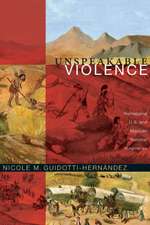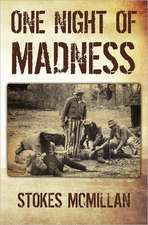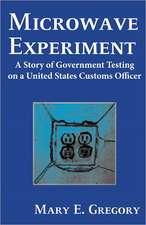Making a New World – Founding Capitalism in the Bajío and Spanish North America
Autor John Tutinoen Limba Engleză Paperback – 31 iul 2011
Preț: 355.67 lei
Nou
Puncte Express: 534
Preț estimativ în valută:
68.08€ • 73.97$ • 57.22£
68.08€ • 73.97$ • 57.22£
Carte tipărită la comandă
Livrare economică 21 aprilie-05 mai
Preluare comenzi: 021 569.72.76
Specificații
ISBN-13: 9780822349891
ISBN-10: 0822349892
Pagini: 712
Ilustrații: 19 illustrations, 164 tables, 9 maps
Dimensiuni: 158 x 231 x 42 mm
Greutate: 1 kg
Editura: MD – Duke University Press
ISBN-10: 0822349892
Pagini: 712
Ilustrații: 19 illustrations, 164 tables, 9 maps
Dimensiuni: 158 x 231 x 42 mm
Greutate: 1 kg
Editura: MD – Duke University Press
Cuprins
List of Maps; Prologue: Making Global History in the Spanish Empire; A Note on TerminologyIntroduction: A New World: The Bajío, Spanish North America, and Global CapitalismPart I: Making a New World: The Bajío and Spanish North America, 150017701: Founding the Bajío: Otomí Expansion, Chichimeca War, and Commercial Querétaro, 15001660; 2: Forging Spanish North America: Northward Expansion, Mining Amalgamations; 3: New World Revivals: Silver Boom, City Lives, Awakenings, and Northward Drives, 16801760; 4: Reforms, Riots, and Repressions: The Bajío in the Crisis of the 1760sPart II: Forging Atlantic Capitalism: The Bajío, 177018105: Capitalist, Priest, and Patriarch: Don José Sánchez Espinosa and the Great Family Enterprises of Mexico City, 17801810; 6: Production, Patriarchy, and Polarization in the Cities: Guanajuato, San Miguel; 7: The Challenge of Capitalism in Rural Communities: Production, Ethnicity, and Patriarchy from La Griega to Puerto de Nieto, 17801810; 8: Enlightened Reformers and Popular Religion: Polarizations and Mediations, 17701810Conclusion: The Bajío and North America in the Atlantic CrucibleEpilogue: Toward Unimagined RevolutionAcknowledgments; Appendix A: Employers and Workers at Querétaro, 15881609; Appendix B: Production, Patriarchy, and Ethnicity in the Bajío Bottomlands, 16701685; Appendix C: Bajío Population, 16001800; Appendix D: Eighteenth-Century Economic Indicators: Mining and Taxed Commerce; Appendix E: The Sierra Gorda and New Santander, 17401760; Appendix F: Population, Ethnicity, Family, and Work in Rural Communities, 17911792; Appendix G: Tribute and Tributaries in the Querétaro District, 1807; Notes; Bibliography; Index
Recenzii
"Making a New World creates a compelling new history of world capitalism in the early modern era, with Mexico at its center. It also provides a comprehensive history of the Bajío, the dynamic mining and agricultural region crucial to understanding the socio-cultural, economic, and political history of Mexico. This exciting, well researched book makes us reconsider what we thought we knew about the Atlantic world. Steve J. Stern, University of Wisconsin-Madison"Making a New World is a fascinating, bold, and challenging study. It is destined to be an indispensable source, the book of first resort on Mexicos most dynamic region in the years leading up to Independence. Braudelian in ambition and range, it offers a virtual histoire totale of the Bajío. Serious attention is given to power, patriarchy, capitalist production, labor, social relations, and culture; the powerful and the poor; and the rural and the urban. Provocative ideas and hypotheses abound. William B. Taylor, author of Magistrates of the Sacred: Priests and Parishioners in Eighteenth-Century Mexico"John Tutinos book is a culminating achievement to more than thirty years of early New World social history. Yet it significantly improves on even the best of that work by framing New Spain in relation to North America and the wider world, showing how gender was crucial to the basic patterns of peoples lives, and illuminating social formations that have remained largely unknown until now.--Peter Guardino, author of The Time of Liberty: Popular Political Culture in Oaxaca, 17501850
Notă biografică
Descriere
A major rethinking of the role of the Americas in early world trade, the rise of capitalism, and the conflicts that reconfigured global power around 1800






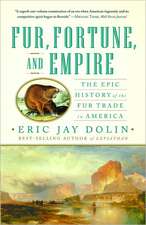
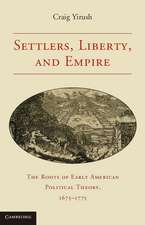

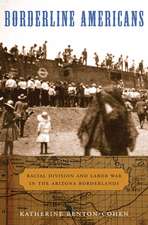
![The Civil War Boxed Set [With American Homer]](https://i0.books-express.ro/bt/9780679643708/the-civil-war-boxed-set-with-american-homer.jpg)
